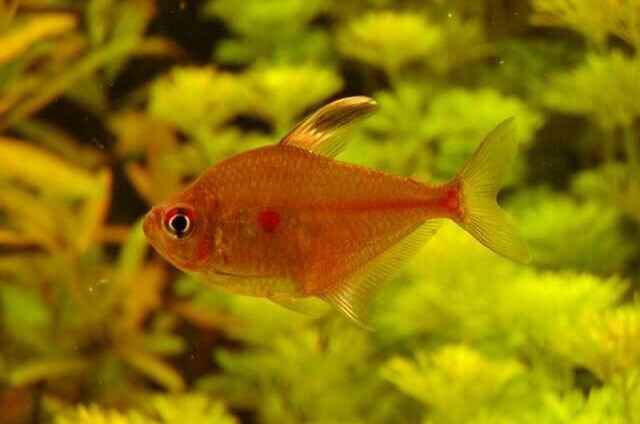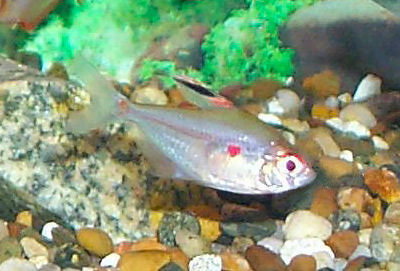Hyphessobrycon Erythrostigma
Both Characidae and Alestiidae belong to the order Characiformes. Characiformes are characterized by well developed teeth (most are carnivores) and the presence of a pelvic fin (with five to twelve rays) and normally an adipose fin, and a body that is almost always scaled (Nelson 1994).
Characidae is a large and diverse family of freshwater subtropical and tropical fish, with members found in Central and South America, southern North America, and Africa, and include such varied forms as the piranhas, the tetras, a blind cavefish in Mexico (populations of Astyanax mexicanus found in caves) and Brazil (Stygichthys typhlops), and a species found as far northward as southwestern United States (Astyanax mexicanus) (Nelson 1994). The characins are distinguished from other fish by the presence of a small adipose fin between the dorsal fin and caudal fin. Both the Characidae family and the Alestiidae families are comprised only of freshwater fish.















No comments:
Post a Comment